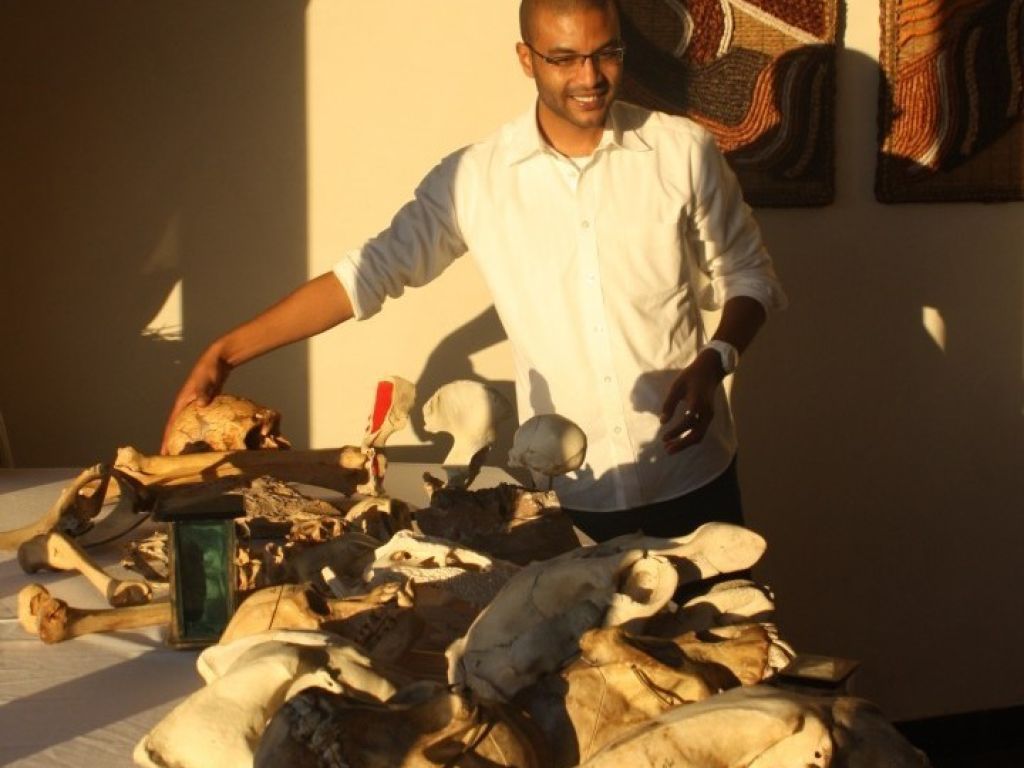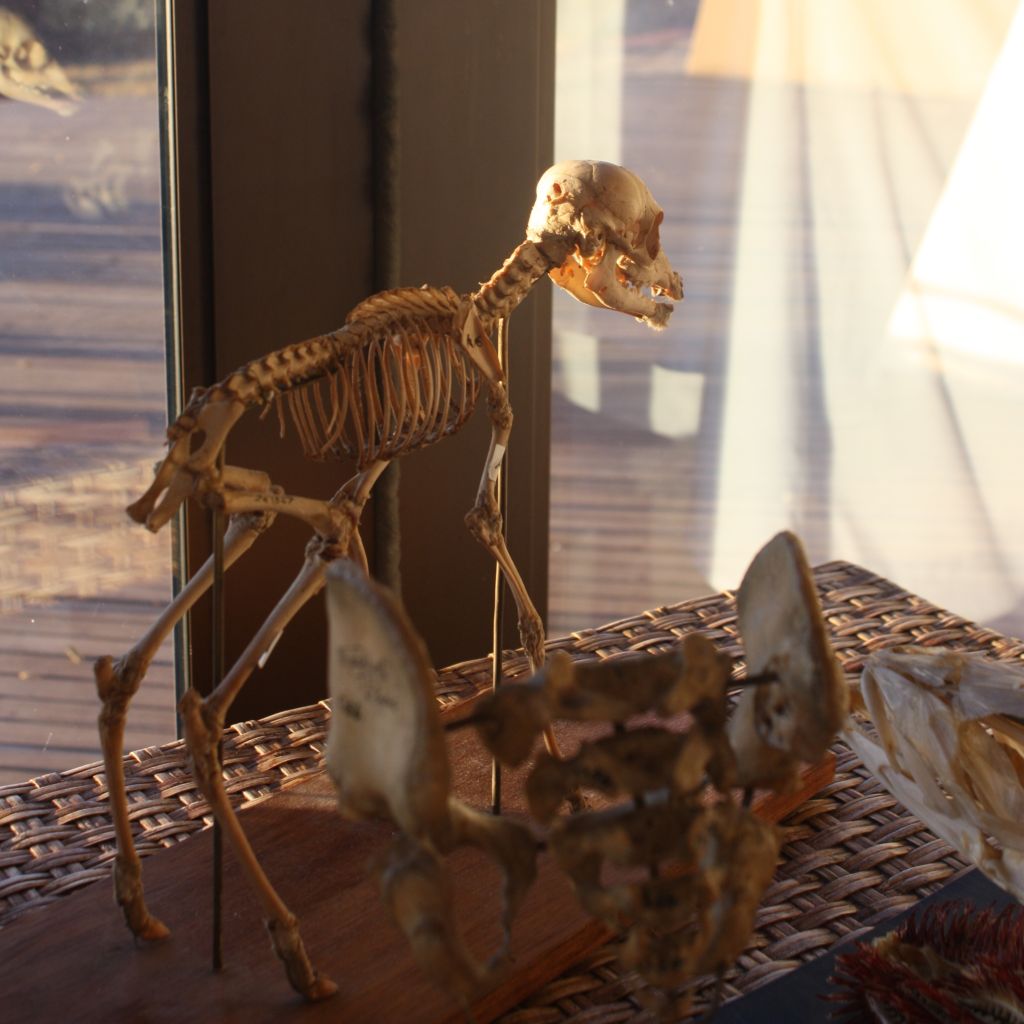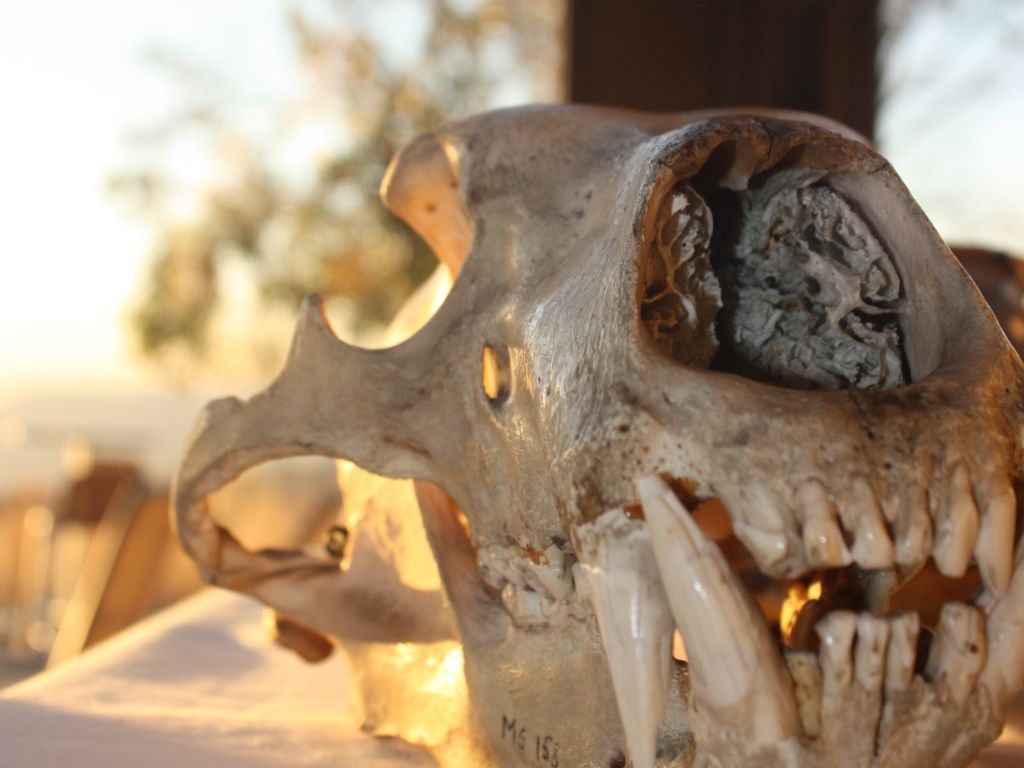Of bones and brains

Any trip to Maropeng will be enlightening and fascinating, and you will always come away a more knowledgeable person. But if you really want to know about what makes us human and how evolution works, you need to ask a “bone detective”.
Brendon Billings – a PhD student, former student of the late prominent paleoanthropologist, Prof Phillip Tobias, and lecturer at the University of the Witwatersrand – is Maropeng’s brilliant resident bone detective.
Maropeng offers several enriching experiences besides its famous exhibition and cave visits – Stargazing, the Cooper’s Cave picnic and tour, and Bone Detectives are all events that will enhance your experience of Maropeng.
The Bone Detectives evening starts with a three-course meal at the four-star Maropeng Hotel, followed by a sit-down chat with the incredibly knowledgeable Billings, during which he explains the basics of evolution and answers any questions you would like to ask him.
Over the course of his academic career, Billings has become increasingly interested in the evolution of the brain and consciousness. He believes the study of human evolution cannot be complete without a study of the mind. At the moment, he is completing a PhD in comparative neuroscience, focusing on the brain of crocodiles.

As unrelated as crocodile cognition seems to be to human evolution, Billings will tell you that studying the way crocodiles think could tell us a lot about how we came to think the way we do, and that learning about the evolution of the human brain is essential to understanding our evolution more broadly.
Billings says, “For me the brain is the organ or structure that dictates all of our behaviour, all of our actions, all of our movement and I believe that this is a very critical organ that needs to be studied.”
Billings’s talk doesn’t only focus on human evolution; rather, he asks, “What makes us human?” To answer this question, however, we must also know what isn’t human.
Billings explains how invertebrates evolved into vertebrates, and how reptiles, mammals, fish and birds are related; what makes some animals more similar to others; and where similarities can be found in surprising places.
For instance, we usually think of problem-solving behaviours as something only observed in higher mammals with bigger brains, but Billings tells us about a recent study in which birds were shown figuring out a way to get to a piece of food floating on some water just outside their reach. The birds discovered that when they put stones in the water, the water level would rise and they could reach the food.

Animals can teach us something about ourselves, and the array of skeletons that Billings brings along to demonstrate this fact are amazing, from the cartilaginous skull of a shark, to the massive skull of a bear, to casts of the famous Mrs Ples and other hominids.
As he passes each skeleton around, Billings asks us to guess what animal it belonged to, something that actually turns out to be quite difficult, but also very enlightening.
The skulls of animals from the same broader families, such as the different types of felines and canines, are very similar, and it became easier to understand how the skulls of our ancestors can be identified as such, and how we can learn so much from them.